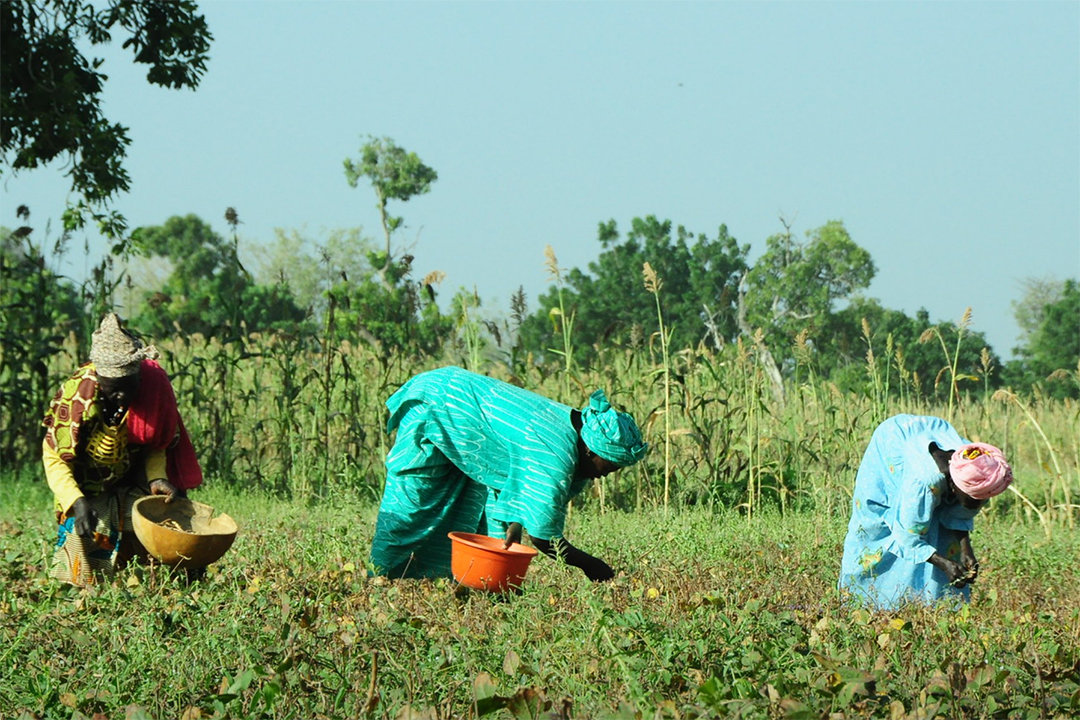National Adaptation Plans (NAPs) and the role of youth in agriculture were the topics of the last two side events covered by the Earth Negotiations Bulletin (ENB) during the UN Climate Change Conference (UNFCCC COP 28) in Dubai, United Arab Emirates (UAE). Both events took place on 11 December.
An event on NAPs highlighted best practices, and identified gaps, related to effective, inclusive, and ambitious NAPs. In particular, the event provided perspectives on ways to enhance support for least developed countries (LDCs) and small island developing States (SIDS) in preparing NAPs that can be operationalized and financed.
The event was organized by the Deutsche Gesellschaft für Internationale Zusammenarbeit (GIZ), the International Institute for Sustainable Development (IISD), the NAP Global Network, BBC Media Action, the University of Twente, the Global Green Growth Institute (GGGI), and the Urban Climate Change Research Network at Columbia University.
Ingrid Gabriela Hoven, Managing Director, GIZ, highlighted: the importance of taking a multi-stakeholder, multi-sectoral approach to designing and implementing NAPs; the need to assess medium- and long-term implications of climate change within NAPs; the need for country-specific approaches when implementing NAPs; and the need to enhance capacity and the provision of resources for implementation at the national, subnational, and local levels.
The first panel focused on the NAP planning process, with speakers highlighting, inter alia:
- GGGI’s efforts to identify and develop guidelines for implementing robust, high-quality NAPs that also feed into the Global Stocktake;
- progress at the policy and legislative levels that have enshrined NAPs into fiscal strategies in Grenada;
- interlinkages between NAPs and extreme events and incorporating disaster risk reduction (DRR) into NAP planning processes; and
- the forthcoming Urban Climate Change Research Network’s Third Risk Assessment Report, which will focus on how climate risk analysis can work alongside adaptation strategies to effectively support the NAP process.
The second panel focused on NAP implementation, with Orville Grey, Head of Secretariat, NAP Global Network, emphasizing the importance of supporting vulnerable partners in NAP implementation and leveraging capacity and financial capital to do so. Other speakers underscored: the role that communication and the media can play in increasing the reach of climate investments in NAPs; the need to also retain traditional forms of financing to build capacity and accelerate NAP implementation; and that NAPs should be implemented in all LDCs by 2030, with scaled up financing.
Another event was jointly organized by the Ban Ki-moon Centre for Global Citizens (BKMC), CGIAR, Fairtrade International, and the Food and Agriculture Organization of the UN (FAO). It addressed approaches to take on board the demands of young agricultural stakeholders. In a video address, former UN Secretary General Ban Ki-moon, BKMC Co-Chair, expressed support for the demands laid out in the Youth AgriChampions Demand Paper 2023, drafted by BKMC Youth AgriChampions, which details the main challenges facing farmers as they try to develop sustainable and profitable businesses.
Lindiwe Sibanda, Chair, CGIAR System Board, mentioned CGIAR’s goal of reaching 500 million smallholder farmers through its work. She outlined several CGIAR initiatives, including the International Institute of Tropical Agriculture Youth Agripreneurs (IYA), which functions as an advocacy and development programme that engages youth in agribusiness through capacity development.
Speakers also noted, among others: the scarcity of agricultural extension officers in countries such as Kenya and Ghana and the need for disaggregated data on how men and women farmers access adaptation training to ensure women’s effective participation in these trainings.

